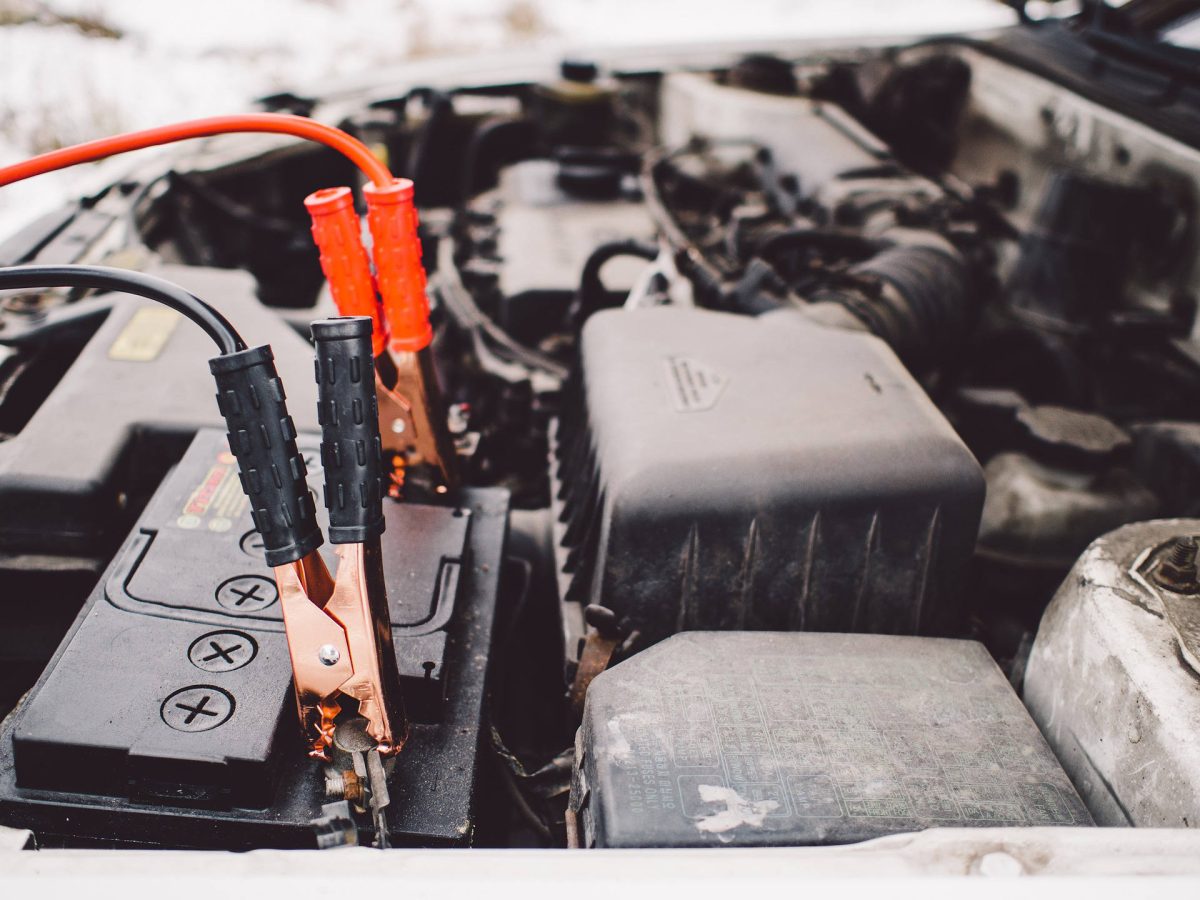
During the coldest months of the year, many of us focus on staying warm and preparing our homes for winter—however, one thing that often gets overlooked—is the health of your car’s battery. While you may be bundled up inside, your vehicle’s battery is working harder than usual, and the frigid temperatures can strain its performance. Cold weather can drain your battery’s power and leave you stranded if you aren’t careful. Understanding how your car battery operates and the impact of winter on its efficiency can help you take better care of it and avoid a potentially costly breakdown.
How Do Car Batteries Work?
To understand how cold weather affects your car’s battery, it’s essential to know how batteries function. A typical car battery comprises a series of lead plates, water, and sulfuric acid, among other materials. These elements collaborate to produce the chemical reactions needed to generate energy. Each battery’s cells comprises two plates, and the car battery usually contains four cells. Each cell produces around 2.1 volts of electricity, up to 12.8 volts when fully charged. This electrical power starts your car’s engine and operates essential systems such as lights, air conditioning, and the radio.
When fully charged, the battery provides the necessary power to start your car without issue. However, if the voltage drops below 12.8 volts, you may encounter trouble starting your vehicle. That’s where the problems with cold weather come in—extremely low temperatures can impact the battery’s ability to function correctly.
The Impact of Cold Weather
Cold weather can significantly affect your car battery’s performance. Batteries generate electricity through chemical reactions, and these reactions significantly slow down at low temperatures. As the temperature drops, the chemical processes inside the battery become less efficient, reducing the overall capacity of the battery. In some cases, if the temperature is extremely low, the battery may struggle to generate enough power to start the engine.
Old batteries are particularly vulnerable to cold weather. As batteries get older, their ability to retain a charge decreases. If you’re driving with an older battery, it may not handle the strain of cold temperatures, and you may find yourself dealing with a dead battery when you need it most.
Other Factors That Drain Your Battery
In addition to the cold weather, certain habits and overlooked accessories can contribute to battery drain. For instance, leaving your car’s radio, heater, or other accessories on when you turn off the engine will continue to draw power from the battery, making it harder to retain enough charge for the next use. It’s common to forget to turn off things like headlights or the trunk light, which can quickly deplete the battery’s power if left unchecked.
Leaving your car parked for long periods in extreme cold without starting can also put additional stress on the battery, as it doesn’t get the chance to recharge properly. Small drains on the battery, like a GPS plugged in or an unclosed trunk, can add up and leave you with a battery struggling to maintain enough power for critical functions.
Protecting Your Battery in Cold Weather
The good news is that there are steps you can take to minimize the effects of cold weather on your car battery. The most effective way to protect your battery is by keeping it as warm as possible when temperatures dip below freezing. If you have the opportunity to use a garage, consider parking your vehicle inside. A warm garage will provide insulation and help maintain the battery’s temperature.
If parking in a garage isn’t an option, products like battery blankets are designed to protect your car battery from the cold. These insulating covers wrap around your battery and help maintain a more stable temperature. Another option is using a battery charger or a jump starter kit, which can provide extra power if your battery becomes too drained to start the car.
Regular maintenance can also help prevent battery problems in the winter. Have your battery tested before the coldest months arrive to ensure it’s still in good condition. If your battery is showing signs of age or deteriorating performance, changing it before winter arrives can help prevent the inconvenience of having a dead battery during a snowstorm.
Get Your Battery Tested
If you’re noticing that your car is struggling to start or it’s been a while since your last battery check, it’sbringing your vehicle to a professional is a good idea. Many mechanics offer battery testing services, which can help identify any issues before they leave you stranded. They can also check your car’s charging system to ensure everything works properly.
Taking a few simple precautions to care for your car’s battery in the winter can make a difference in ensuring your vehicle starts every time you need it. Don’t let cold weather leave you stuck—take the time to check your battery’s health and keep it protected throughout the season.

